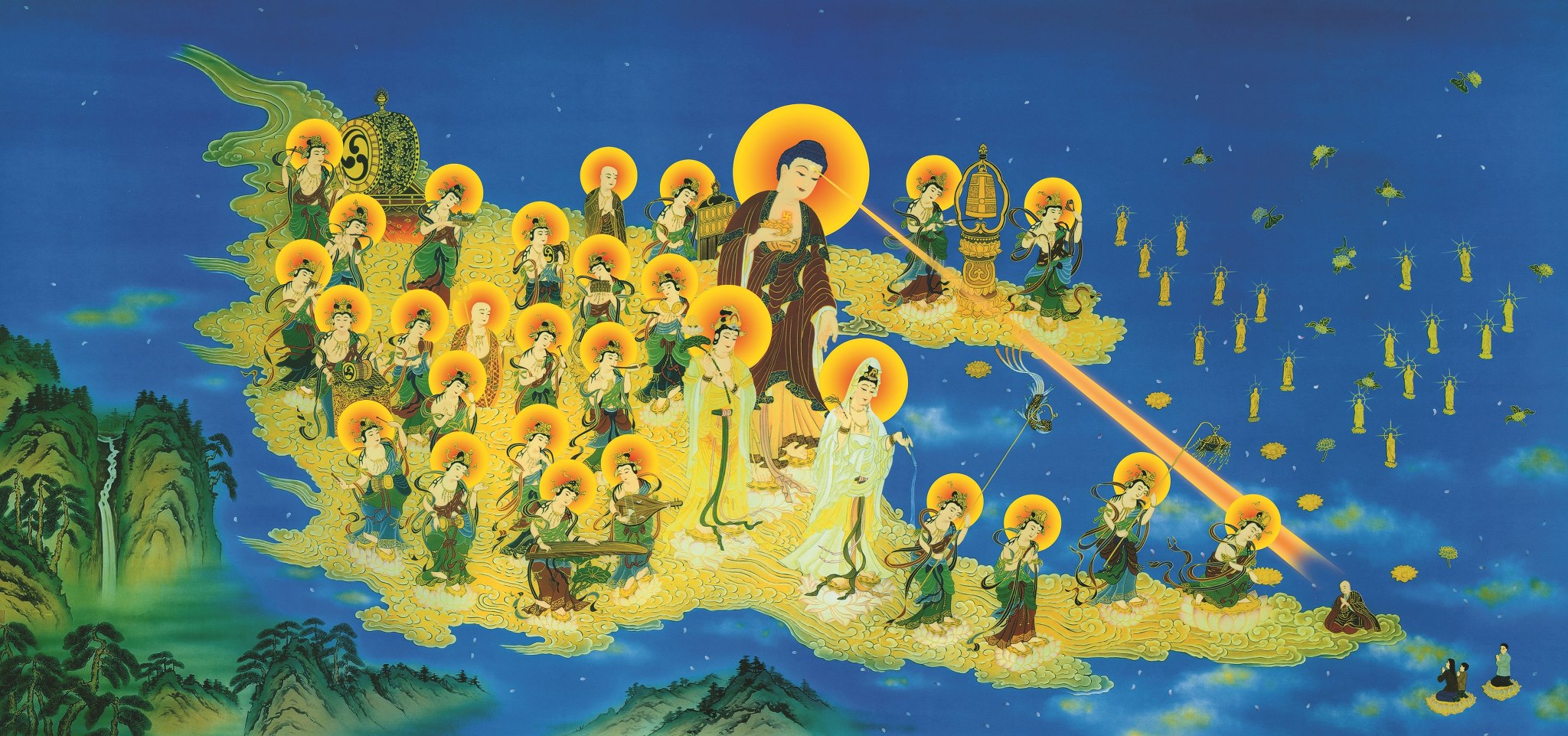
I started my Buddhist journey shortly after lockdown, which is almost three years ago. I have struggled with mental health problems throughout my life—though thankfully minor compared to many—and it seemed to me there was a pragmatic reason that I should make some special effort to protect my mind during that time, which was looking to be tough for everyone.
Like many westerners who are approaching Buddhism, the entire religion seemed extremely opaque. Looking through my western "Judeo-scientific" lens, I spent an inordinate amount of time considering what was supposed to be literal or metaphorical. I was attached to a secular worldview. Western transmissions of Japanese Zen were then the obvious choice.
I found a sangha in the UK, that only did online sittings, due to COVID. I went deep into the zazen practise, and of course all the obstacles that come with that. Feeling like I was understanding, arrogance, confusion, doubt, insincerity. I eventually was assigned a personal teacher-in-training, who gave me some light guidance, and I took part in a short online weekend retreat with the sangha.
Three disasters struck, one of them being the most unexpected and ultimately fatal to my Zen career. First, I had begun to harbour an extreme sense of doubt in my teachers. I had been practising for a year by that point, and I read and researched quite a lot, as well as talking (or perhaps arguing) to a lot of people online. Through all this, I came to warm up considerably to a traditional view of Buddhism, and that specified certain things about what a teacher should be. Specifically, a teacher should not doubt their awakening. Well, our head teacher certainly did, as did my own assigned teacher. I had no explanation for this, and all of the constant argumentation between different Zen teachers online agitated me further. I confronted my teacher, but he could not reassure me. I simply had lost what little faith I had in them, and it was replaced by doubt. Second, I moved country, which severed connection to my sangha. Finally, during the aforementioned weekend retreat, I badly, perhaps permanently, injured my knee. This was the ultimately devastating one, since I could no longer do the only practise I knew how to do, zazen.
I did not practise for a reasonable amount of time, but then a few weeks ago I had realised something. For a long time I liked to think of myself as a Pure Land Buddhist, simply because I wanted to ensure my eventual liberation somehow, however I could not quite commit to it. Then one day I noticed, I have been randomly reciting the nembutsu "namo amida butsu" for months, and building faith in the vow without even realising it. Somehow I unconsciously committed myself to it, without even my own decision.
I then realised, my history of self-doubt, my doubt in others, my imposter syndrome, all of this is fuel for faith in Amitabha's vow. The reason being is that, the very reason Amitabha made this vow, is to save deluded, ignorant beings such as myself, so by having such doubts I only justify my faith in the vow. Therefore, the doubt automatically builds the faith. I have faith in the vow because I am doubtful, and doubtful beings are deluded and the targets of salvation.
To me, this is my perfect home. If I simply accept this as it is, then I do not need to worry about my practise anymore, since I am already saved.
Why, in the end, was it easy to accept? Why was it easy to accept there is some cosmic place called the Pure Land or some magical being called Amitabha? I think ultimately it is because of my Zen practise. I used to be a very secular person, because I thought that the external world was real. In zazen we drop discriminative thinking, and we see that inside is outside, that views are illusory, that the material world is not objectively the only thing. So it becomes easy, in the view of emptiness, to believe in such things as Amitabha Buddha.
There are innumerable modes of entry into the Buddha's teaching. Just as there are in the world difficult and easy paths - travelling on foot by land is full of hardship and travelling in a boat by sea is pleasant - so it is among the paths of the bodhisattvas. Some exert themselves diligently, while others quickly enter Non-retrogression by the easy practice based on faith.
Nagarjuna